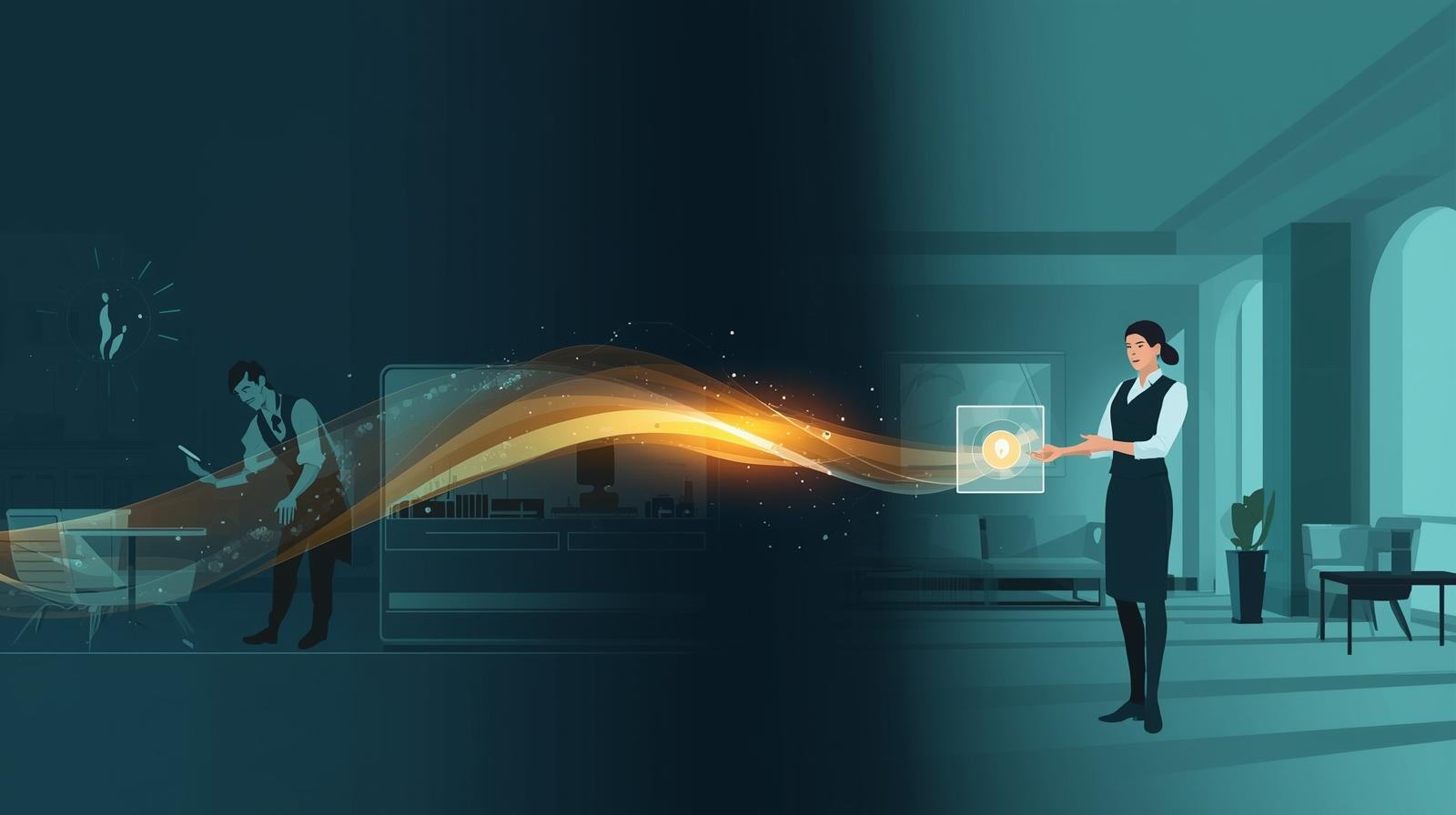Proactive Hospitality: Anticipating Needs Before They Arise
Hospitality has always been about service — anticipating needs, noticing details, and delivering comfort before a guest even realizes what they want. But today, the way hotels achieve that intuition is changing fast.
AI and predictive data analytics are pushing hospitality from reactive to proactive. Instead of waiting for a request or complaint, hotels can now predict what guests will need — and act before they ask. This quiet shift is redefining what “great service” means in modern hospitality.
From “What Went Wrong” to “What Might Go Wrong”
Traditional hotel operations are built around response. A guest calls the front desk, a review flags an issue, a manager reacts. By the time the team steps in, the moment has already passed.
Predictive systems flip that timeline. Using AI-driven analytics, hotels can detect early warning signs before they turn into problems.
- A delay in digital check-in might signal confusion in the pre-arrival process.
- A cluster of Wi-Fi complaints on one floor could point to an equipment issue.
- A rise in late check-outs might indicate a pattern with certain room types or guest segments.
What once seemed random now becomes data — and data becomes foresight.
What Proactive Hospitality Looks Like
1. Operational Foresight
Predictive maintenance tools track everything from air-conditioning performance to elevator usage. When an anomaly appears, the system alerts staff before guests are affected.
Instead of firefighting, teams can schedule, plan, and prevent.
2. Deeper Guest Understanding
When CRM and messaging data come together, patterns emerge.
A returning guest who often asks for extra towels or late breakfast can be served proactively.
These small gestures feel personal — not programmed — because they’re based on behavior, not assumptions.
3. Personalized Pre-Arrival Outreach
AI enables personalization at scale. A pre-arrival message might say,
“We noticed you usually arrive early — would you like us to have your room ready before check-in?”
That’s not automation replacing intuition. It’s automation amplifying it.
The system learns habits, while staff deliver warmth.

Why Proactivity Wins
Guests today don’t just want fast service — they want no surprises.
Predictive hospitality creates an effortless experience: fewer issues, smoother stays, and the quiet confidence that everything “just works.”
Operationally, it’s a win too.
When teams know what’s coming, they can manage better.
The front desk becomes calmer, housekeeping schedules more balanced, and guest interactions more human.
AI takes care of the noise, so people can focus on connection.
The Tools That Make It Possible
- AI-Based Guest Profiling: Analyzes stay patterns, communication tone, and preferences to predict behavior.
- Predictive Maintenance: Monitors systems and detects anomalies before they impact service.
- Real-Time Dashboards: Highlight trends like breakfast wait times, room-service delays, or noise complaints — in the moment.
- Integrated Messaging AI: Suggests proactive messages or follow-ups based on guest sentiment and timing.
These tools are increasingly built into modern PMS and guest engagement platforms.
The goal isn’t to add more tech — it’s to make service feel natural again.
From Data to Emotion
Predictive analytics isn’t just about numbers.
Used well, it supports what hospitality does best — creating moments of care.
A message that anticipates a need can feel deeply human when it’s rooted in understanding.
That’s where the industry is headed: combining data intelligence with emotional intelligence.
The Bottom Line
Proactive hospitality doesn’t mean predicting every detail of a guest’s stay.
It means staying one step ahead — using data to create calm instead of chaos.
The shift from “What happened?” to “What’s about to happen?” is more than a technical upgrade.
It’s a mindset change — from reacting to problems, to designing experiences that prevent them altogether.
Hotels that master this won’t just serve guests better.
They’ll redefine what it means to feel taken care of.